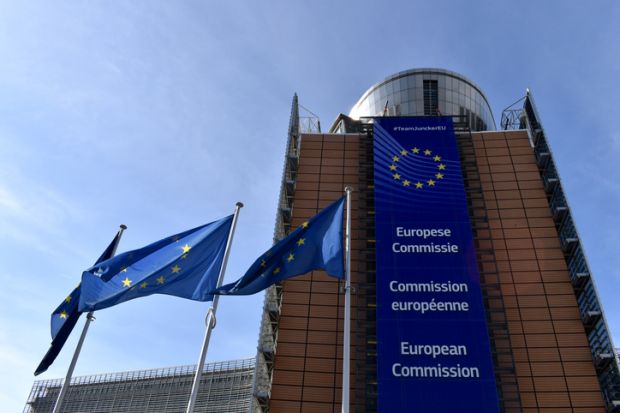Leading international university associations have urged the European Commission to boost investment in research, innovation and higher education through its €300 billion (£252 billion) “Global Gateway” infrastructure project, established to “narrow the global investment gap worldwide”.
Umbrella bodies including the Guild of European Research-Intensive Universities and the African Research Universities Alliance (ARUA), alongside several rectors’ associations, research organisations and individual universities, published a statement on 19 March calling on the commission “to scale up investment in research, innovation and higher education infrastructure” in low- and middle-income countries (LMICs) worldwide, and to “incentivise equitable collaborations with research institutions in Europe”.
“The European Commission, national authorities and the private sector must invest adequately in research, innovation and higher education – in line with Global Gateway priorities – to strengthen the competitiveness, resilience and preparedness of Europe,” the organisations said.
Launched in 2021, the commission described the Global Gateway as “a new European strategy to boost smart, clean and secure links in digital, energy and transport sectors and to strengthen health, education and research systems across the world”. Up to €300 billion will be invested in “sustainable and high-quality projects” by 2027, the commission said, with the €150 billion “Africa-Europe Investment Package” the first to be announced.
While the commission cited education and research as one of five Global Gateway priorities, research “does not feature as a strong component” of the initiative’s 2025 list of 46 flagship projects, the university associations said, with other sectors represented including climate and energy, digital transformation, transport and health.
Research, innovation and higher education must be “better integrated across all Global Gateway priorities to ensure the competitiveness, effectiveness and sustainability of our international partnerships”, the statement read.
The groups further called for international research collaboration with low- and middle-income countries to be funded by an “excellence-based” and “self-standing” successor to the Horizon Europe framework programme, currently known as FP10, stating: “EU budget simplification should not artificially differentiate excellent research collaboration between Europeans from our similarly excellent collaboration with partners in LMICs.”
At present, the future of FP10 as a stand-alone programme is uncertain, with the European Commission signalling an intention to fold it into a broader European Competitiveness Fund.
The establishment of a research-centred advisory group to the Global Gateway, the university groups suggested in their statement, would “enhance” the initiative “with valuable experience, expertise, coordination and readiness to act”.
“Realising the full potential of the Global Gateway through a ‘Team Europe approach’ requires continued and sustained investment in research, innovation, and higher education as key enablers of sustainable development,” the statement concluded. “Together with our partners in LMICs, we stand ready to contribute our expertise, experience, and partnerships to make this vision a reality.”
Register to continue
Why register?
- Registration is free and only takes a moment
- Once registered, you can read 3 articles a month
- Sign up for our newsletter
Subscribe
Or subscribe for unlimited access to:
- Unlimited access to news, views, insights & reviews
- Digital editions
- Digital access to THE’s university and college rankings analysis
Already registered or a current subscriber?









